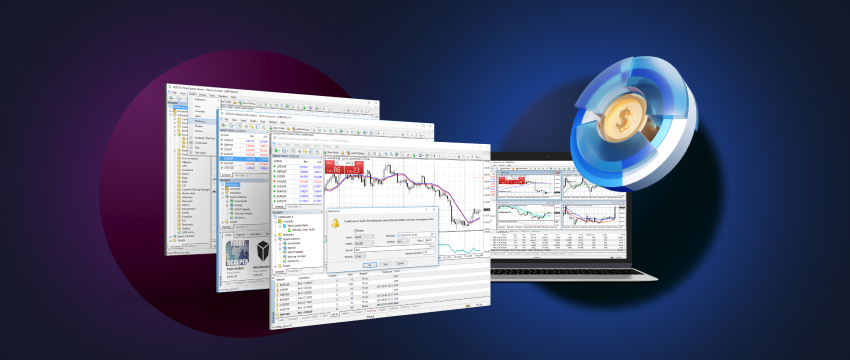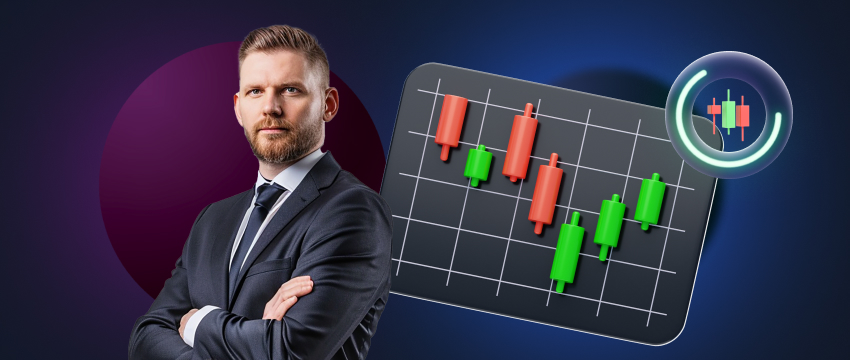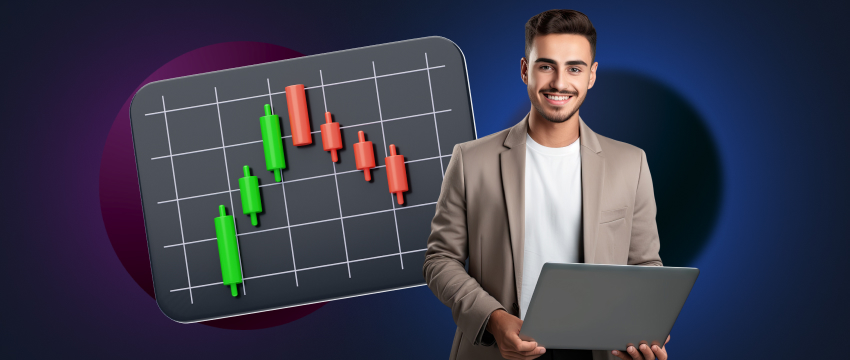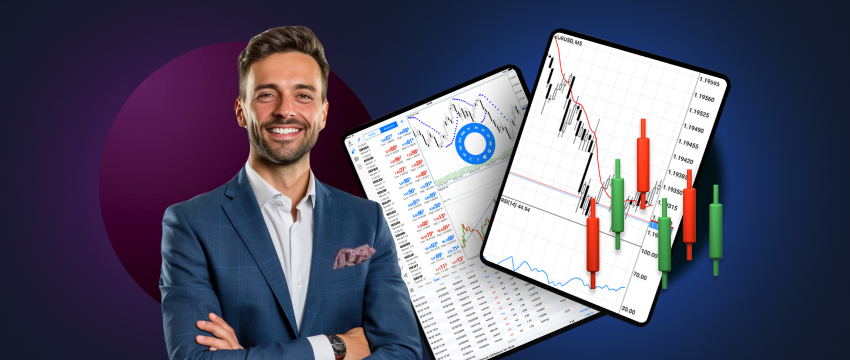Forex trading has often been compared to gambling, largely due to its speculative nature and the risk it may incur. However, there are key differences between forex trading and gambling that we’ll explore in this article.
1. Trading Education, knowledge and skill
Successful forex traders seek to acquire a good understanding of the forex market, the largest financial market globally. They continuously strive to become more skilled in technical and fundamental analysis and risk management techniques. Additionally, they usually utilize well-planned trading strategies in an attempt to maximize trading opportunities. They don’t simply rely on luck or chance, as is often the case with gambling.
The way successful traders do this is through ongoing learning. There are abundant educational resources online related to trading. Many of these are offered by forex brokers too. For example, the T4Trade Academy offers traders access to ebooks, podcasts, webinars, Live TV, and even a real-time Economic Calendar to monitor releases and events.
T4Trade’s blog page is also full of useful articles that cover a range of trading-related topics, including popular forex terms, strategies, analysis, etc. Regardless of the medium, all of these are great tools to improve one’s knowledge about all aspects of trading.
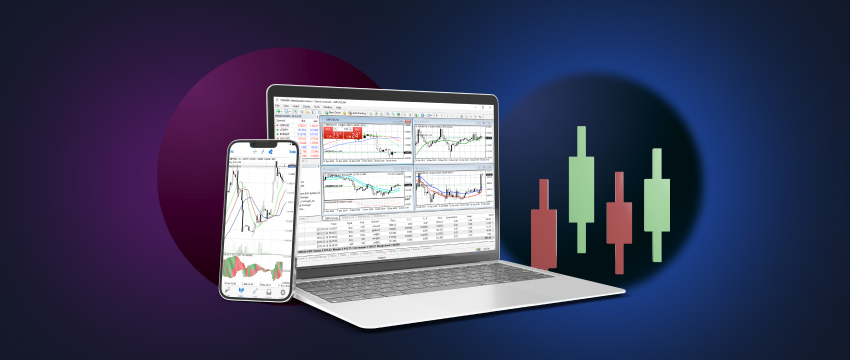
2. Use of risk management tools
Forex is highly risky which is why traders make use of rigorous risk management tools to safeguard their funds. This includes setting stop-loss orders to mitigate unanticipated losses as well as take-profit orders which lock in potential profits at a predetermined price level. In contrast, gamblers often expose themselves to higher risks without proper tools to control or mitigate losses.
3. Analysis and research
Forex traders typically strive to master technical and fundamental analysis for making decisions and executing trades. Gamblers usually rely on luck.
Deciding which form of analysis to use is largely dependent on the forex trader’s strategy as each type of analysis has its own strengths and weaknesses.
Analyse technique
This form of analysis focuses on the study of price movements. It is based on the premise that a trader can look at historical price fluctuations and establish current trading conditions and potential price movements. Some of the most popular analyse tools include RSI indicator, Moving Average indicator, Oscillator indicators, MACD indicator, Bollinger Bands, Volatility indicators, etc.
Technical analysts tend to pour over charts to identify patterns or trends and potential support and resistance levels. They also attempt to identify market trends to determine whether its bullish, bearish, or ranging. Additionally, they may backtest their strategies using historical price data.
Fondamentaux
Fundamental analysis looks at how the forex market (currency prices) is impacted by economic, political, and environmental (or even social) factors. More specifically, a fundamental analyst will monitor:
- Central bank policies and announcements may have a substantial impact on currency values.
- Economic indicators such as GDP, interest rates, inflation rates, employment rates, and consumer sentiment – all of which influence a country’s economic health and financial stability.
- Geopolitical events like war, conflicts, etc.
- Market and/or investor sentiment to establish market expectations and positioning.
Traders using fondamentale will typically make use of an Economic Calendar to monitor major releases and plan their trades accordingly. T4Trade for instance offers an Economic Calendar for forex traders. To keep track of current and future financial activities that may impact currency values. The calendar includes dates of key market-moving releases or events that could drive asset prices up or down.
4. Long-term vs short-term investment goals
Gambling is typically a short-term, high-risk means of making a quick gain. In contrast, trading may entail longer-term strategies to maximize potential profits. Position trading for instance is a long-term forex strategy whereby a trader may hold onto a position for weeks, months, or even years. Position traders usually ignore shorter price moves and instead, strategize on how to make a return on longer-term trends. A position trader is one that will make use of fundamental analysis primarily, as well as technical analysis if required.
5. Trading psychology
Both gambling and forex trading are highly emotive activities. However, maintaining emotional discipline is reportedly less common in gambling than in trading.
Trading psychology refers to psychological and emotional factors that influence a trader’s decision-making process and behavior.
This refers to variables like discipline, impulsiveness, rationale, greed, fear, bias, and self-control – all of which can adversely impact trading outcomes if not properly managed or handled. Understanding one’s psychology is incredibly important as it is a means of identifying parts of your behavior that may hinder trading success. With gambling on the other hand, emotions may run high and the ability to maintain self-control may diminish which could lead to excessive losses or compulsive behaviour.
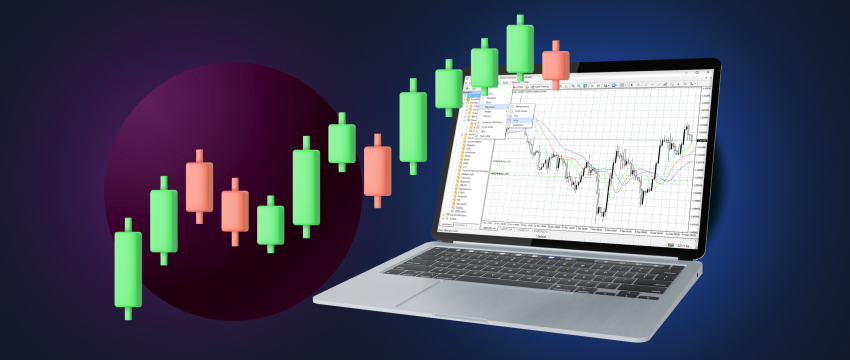
6. Acquiring skills through practice
A demo account offers traders a way of putting their knowledge to the test without risking their own capital. A demo account provides a simulated trading environment, mimicking real market traditions, in which a trader can test their strategies, identify what works and what doesn’t, and make changes accordingly. Using virtual funds, a trader can open and close positions and assess outcomes.
They can learn how to implement technical and fundamental analysis to optimize trading. A demo account provides beginner traders with the time needed to gain more experience and confidence before moving to a live environment. For the more experienced trader, a demo trading account offers a means to test complex trading strategies before implementing them in a live trading environment.
While it’s pretty evident that there are distinct differences between forex trading and gambling, this is not to say that trading forex doesn’t come without risk. With proper focus, a robust plan, a strategy that aligns with your goals and expertise, as well as proper risk management measures, high losses are always possible. Ensure you enter the forex trading space with clearly defined objectives, a proper budget that doesn’t eat into your savings, and a proper understanding of what trading entails.
How can T4Trade help you become a better trader?
If you’re looking for a courtier en CFD that seeks to optimize the experience, T4Trade is a great option. T4Trade is a powerful broker used by traders worldwide to engage in the forex market. They provide traders with many of the tools required to become better skilled, be this through an extensive range of educational resources (videos, webinars, podcasts, Live TV), a highly informative blog page, and an FAQ page that addresses many of the most common questions traders want answers for.

Trader avec T4Trade
T4Trade offers traders a flexible trading environment through which they can access over 300 financial instruments from 6 asset classes. This includes shares, indices, forex, futures, metals and commodities. T4Trade traders can also choose from a variety of trading accounts that best meet their needs and align with their goals and level of expertise. Traders can also enjoy flexible leverage, tight spreads, and quick executions. A multilingual customer support team is also on hand 24/5 to address any of your concerns via telephone, email, or Live Chat.
Clause de non-responsabilité : Ces informations ne sont pas considérées comme des conseils ou des recommandations d'investissement, mais plutôt comme une communication marketing.
